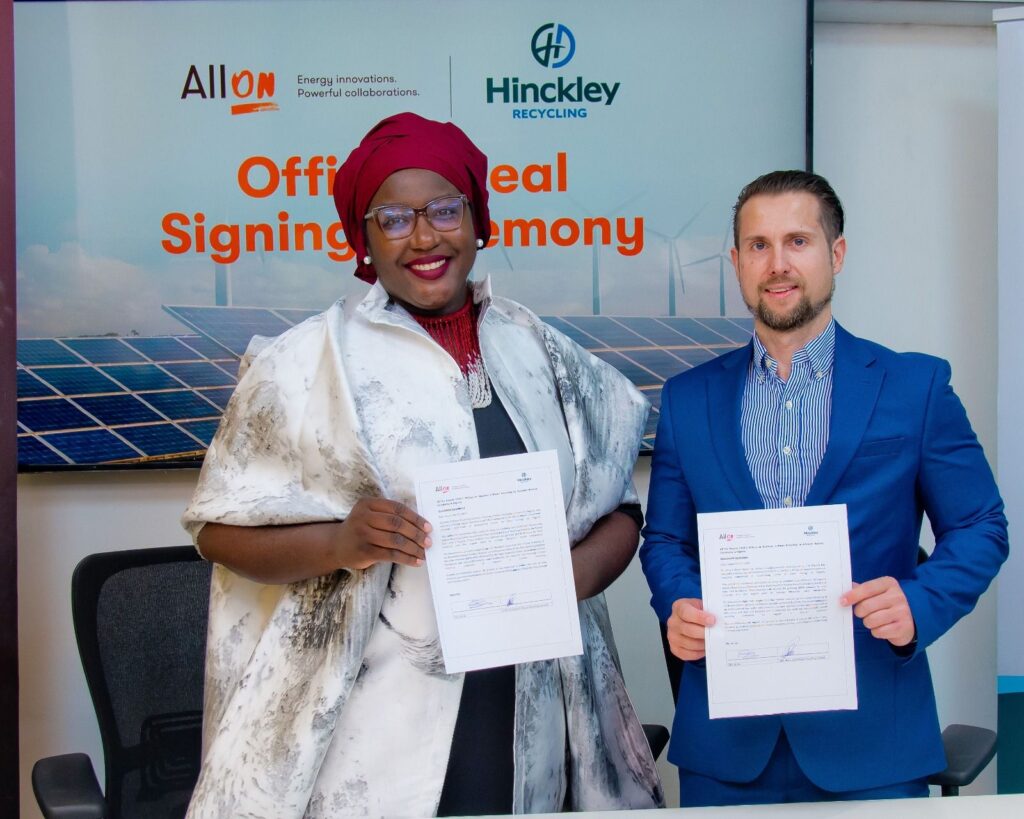Hinckley E-Waste Recycling Limited, one of Nigeria’s leading e-waste management firms, has secured a $1.5 million equity investment from All On, an impact investment company focused on expanding access to clean energy across the country.
According to a statement, the funding will enable Hinckley to establish state-of-the-art Lithium-ion Battery Recycling and Reuse, as well as Used Lead-Acid Battery Recycling facilities, the first of their kind in Nigeria. These facilities aim to meet the growing demand for solar batteries while addressing the urgent need for sustainable e-waste management.
The investment builds on insights from All On’s sponsored report, Market Research on the Circular Economy of the Renewable Energy Sector in Nigeria, which highlighted the environmental and health risks of improper disposal of solar components such as lithium-ion and lead-acid batteries. The report underscored the need for commercially viable recycling initiatives to strengthen Nigeria’s circular economy.
CEO of All On, Caroline Eboumbou, said:
“As Nigeria’s clean energy sector expands, so does the volume of electronic waste. Our investment in Hinckley is a direct response to the findings of our circular economy research and reflects our commitment to building a sustainable battery supply chain that supports local value creation, environmental stewardship, and inclusive growth.”
Also commenting, All On’s Investment Manager, Oluseye Bassir, explained that Hinckley’s model tackles both the environmental hazards of e-waste and the economic opportunities in recycling.
“This investment will help ensure that mass adoption of renewable energy systems does not create serious pollution problems caused by poor disposal of batteries and other e-waste. It will also make the sector more sustainable,” he said.
Bassir added that the project is expected to reduce solar product costs, create jobs, and foster ecosystem growth in Nigeria’s clean energy and recycling sectors.
On his part, Hinckley CEO, Adrian Clews, emphasized the company’s commitment to environmental sustainability and livelihoods:
“Through this investment, we aim to strengthen our commitment to both environmental care and livelihood enhancement—shifting informal e-waste collection into organised systems and building recycling facilities that comply with global standards. Our goal is to manage Nigeria’s growing and increasingly complex e-waste stream safely, responsibly, and sustainably.”
Clews added that improving e-waste recycling infrastructure will help reduce health and environmental risks while supporting thousands of Nigerians currently working in informal waste collection.















